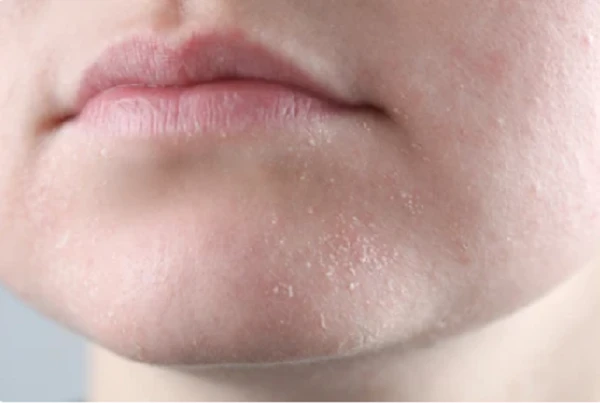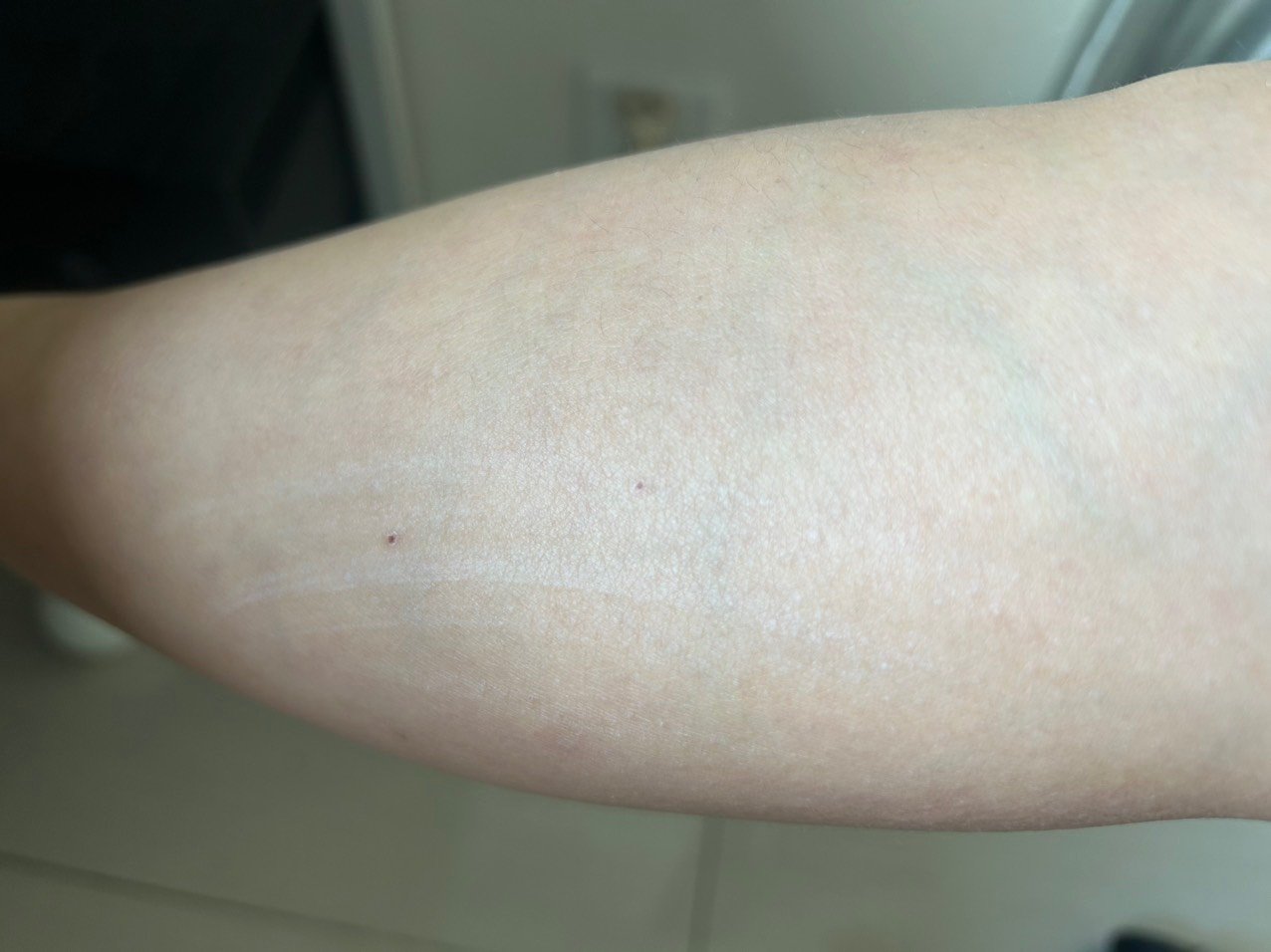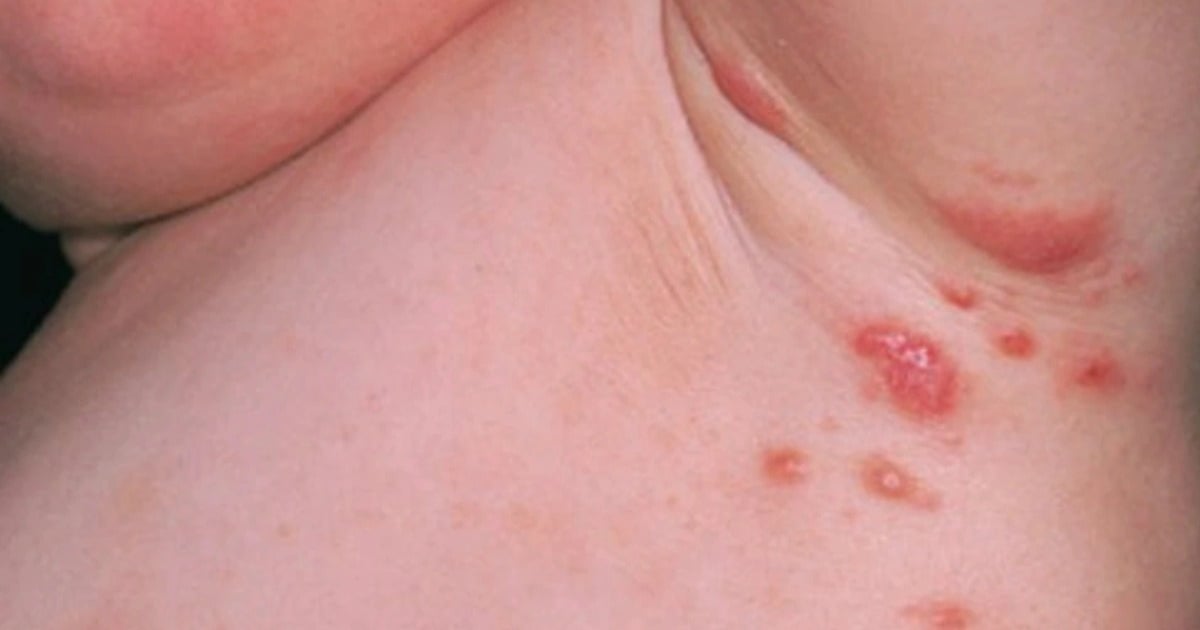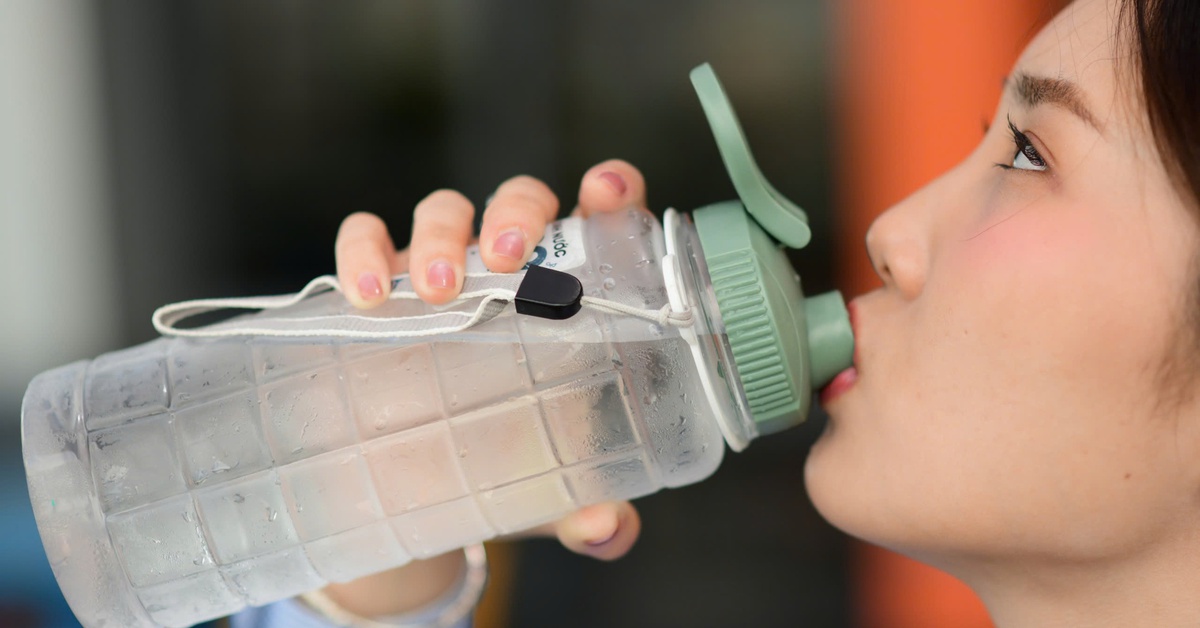Master - Doctor Le Minh Chau (Department of Dermatology - Cosmetic Dermatology, University of Medicine and Pharmacy Hospital, Ho Chi Minh City) said that in the changing seasons, when the weather turns cold, people often encounter skin diseases such as dry skin, skin that is easily irritated, and allergies. In addition, skin diseases related to the skin barrier such as psoriasis, atopic dermatitis, eczema are also prone to outbreaks during this time.
Weather-related skin allergies often have the following symptoms: dry skin, itching, redness, hives, and fine flakes. And itching often makes patients prone to scratching and infection.
People with skin barrier damage diseases such as atopic dermatitis, eczema, psoriasis are more susceptible to skin allergies than others because this season will make the skin drier, the damaged skin barrier will also lose its natural moisturizing substances, so the skin will be more susceptible to damage.
According to estimates from the World Allergy Association, about 40% of people are allergic to airborne allergens. When allergic, patients may suffer from allergic rhinitis, asthma or skin allergies.

About 40% of people are allergic to airborne allergens.
Master - Doctor Nguyen Phuong Thao (Department of Dermatology - Cosmetic Dermatology, University of Medicine and Pharmacy Hospital, Ho Chi Minh City), said that normal physiological dry skin condition will not have too severe symptoms. Sometimes the skin is rough and bumpy. In the case of pathological dry skin, in addition to the feeling of the skin no longer being smooth, there will be flaking or redness.
Dry skin often appears in exposed skin areas such as the face, hands, feet, knees... Although dry skin is not dangerous, there are many subjects such as chronic kidney failure, HIV infection, if dry skin is not treated promptly, it can cause serious complications.
"If the dry skin becomes severe, the patient will itch too much, leading to scratching, causing scratches, creating abrasions on the skin. These are the gateways for pathogens from the outside to penetrate into the body, leading to local infections, and can even cause systemic infections," Dr. Thao shared.

Rough, bumpy skin due to dry skin
To stop dry skin, the first principle is to hydrate the skin. The simplest and least expensive solution is to drink enough water. A normal person needs 2 liters of water per day. Doctor Thao recommends that we need a diet rich in trace elements and minerals such as zinc, vitamin D, vitamin E to help the skin recover.
In addition, people with physiologically dry skin need to maintain their health regularly by exercising, practicing physical exercises and learning how to bathe properly (do not bathe in water that is too hot, do not bathe for too long); limit the use of cleaning products containing alkaline substances.
Sensitive Skin Care at Home
According to Dr. Thao, just basic skin care steps can help make sensitive skin healthy and bright. People with sensitive skin need to ensure a basic skin care routine with 3 main steps: cleansing, moisturizing, and sun protection.
To ensure that the skin lightening process is effective, scientific and safe, it is necessary to choose products that are alcohol-free, fragrance-free and have been researched and clinically tested. For lightening products, you should choose products with active ingredients that are safe for sensitive skin such as Niacinamide and plant extracts. In addition, Niacinamide also has anti-inflammatory and redness-reducing effects; thereby helping to soothe the symptoms of sensitive skin. In particular, you should avoid oil-based products that contain soap and fragrance because of the risk of causing allergies and clogging pores.
For the daytime skincare step, in addition to moisturizer, people with sensitive skin should apply sunscreen to protect the skin from darkening due to sunlight. For the nighttime skincare step: In addition to ingredients that have a mild brightening effect, you should pay attention to active ingredients that provide high moisture such as hyaluronic acid, glycerin, etc. Providing enough moisture for the skin is the foundation to help reduce sensitivity, improve skin health as well as increase the effectiveness of skin lightening products.
Source link


![[Photo] Prime Minister Pham Minh Chinh receives CEO of Standard Chartered Group](https://vstatic.vietnam.vn/vietnam/resource/IMAGE/2025/4/2/125507ba412d4ebfb091fa7ddb936b3b)

![[Photo] Prime Minister Pham Minh Chinh receives Deputy Prime Minister of the Republic of Belarus Anatoly Sivak](https://vstatic.vietnam.vn/vietnam/resource/IMAGE/2025/4/2/79cdb685820a45868602e2fa576977a0)
![[Photo] Comrade Khamtay Siphandone - a leader who contributed to fostering Vietnam-Laos relations](https://vstatic.vietnam.vn/vietnam/resource/IMAGE/2025/4/3/3d83ed2d26e2426fabd41862661dfff2)
![[Photo] Special relics at the Vietnam Military History Museum associated with the heroic April 30th](https://vstatic.vietnam.vn/vietnam/resource/IMAGE/2025/4/3/a49d65b17b804e398de42bc2caba8368)












![[Video] Hanoi ensures adequate supply of medicine to prevent and control epidemics during the changing seasons](https://vstatic.vietnam.vn/vietnam/resource/IMAGE/2025/4/3/ad5d4d3bad3b469ba636737dc4e6efd1)


![[Video] Increasing responsibility and benefits when providing health insurance examination and treatment](https://vstatic.vietnam.vn/vietnam/resource/IMAGE/2025/4/3/c3e3c29e48d3425e8ea6a9c4c2b30640)










































































Comment (0)